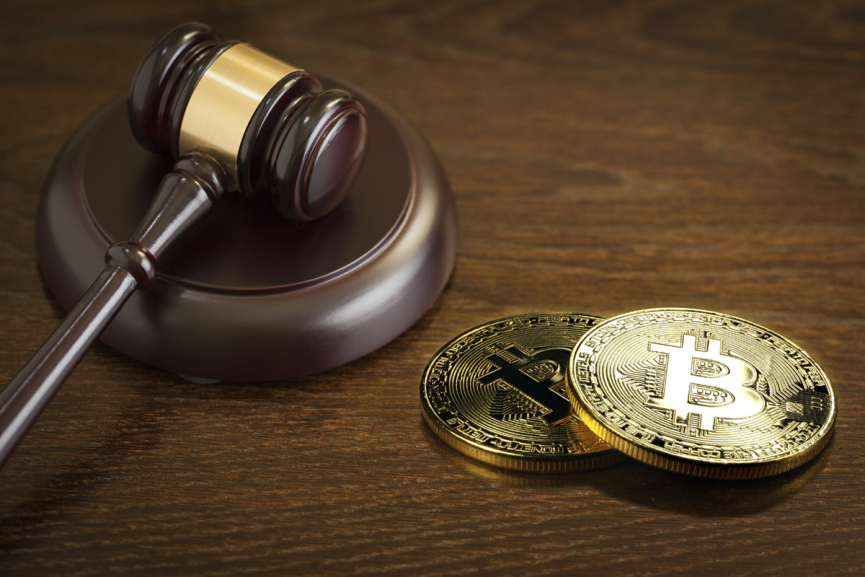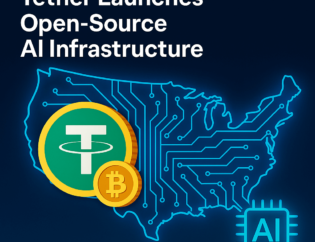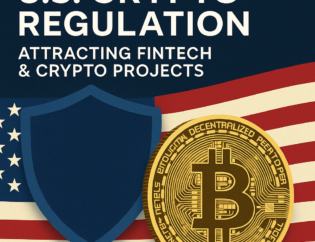
Senate Subcommittee Reviews Bipartisan Crypto Legislation
The Senate Banking, Housing, and Urban Affairs Subcommittee on Digital Assets recently held a hearing titled “Exploring Bipartisan Legislative Frameworks for Digital Assets.” Discussions centered on bills such as FIT 21, the GENIUS Act, and the BITCOIN Act. While lawmakers from both parties emphasized the need for regulatory clarity, some expressed concerns over issues like anti-money laundering (AML), Know Your Customer (KYC) compliance, consumer protections, and financial stability.
Full hearing details:
 https://www.banking.senate.
https://www.banking.senate.
House and Senate Seek to Overturn IRS DeFi Broker Rule
A joint resolution (H.J. Res. 25) aimed at repealing the IRS DeFi Broker Rule passed the House Ways and Means Committee with a 26-16 vote. The rule had expanded the definition of “broker” to include DeFi software providers, classifying them as regulated intermediaries. Sen. Ted Cruz (R-TX) introduced the Senate version (S.J. Res. 3). If approved, the resolution would block the IRS from reinstating the rule. The Senate passed it with a 70-27 vote, and it awaits a full House vote.
Congressional Crypto Caucus Announced
On March 3, Representatives Tom Emmer (R-MN) and Ritchie Torres (D-NY) launched the Congressional Crypto Caucus. Unlike the Congressional Blockchain Caucus (established in 2017), this new group is intended as a voting bloc to push crypto-focused policies in the House. It aims to advance digital asset legislation, including stablecoin regulation and market structure bills.
SEC Replaces Crypto Enforcement Unit
The SEC has dissolved its Crypto Assets and Cyber Unit, replacing it with the Cyber and Emerging Technologies Unit (CETU). Led by Laura D’Allaird, CETU will oversee investor protections while supporting financial innovation. Acting SEC Chair Mark Uyeda emphasized that CETU will work to ensure capital formation while combating fraudulent activities.
SEC Announcement:
 https://www.sec.gov/news/
https://www.sec.gov/news/
SEC Forms Crypto Task Force
SEC Commissioner Hester Peirce introduced a new Crypto Task Force to provide clarity on how securities laws apply to the crypto market. The task force consists of experts from multiple SEC divisions and aims to establish practical solutions to regulatory challenges. The SEC will also hold a roundtable on March 21 to define the security status of digital assets.
SEC Statement:
 https://www.sec.gov/news/
https://www.sec.gov/news/
House Committee Recommends FDIC Crypto Banking Reforms
House Financial Services Committee Chair French Hill (R-AR) and other lawmakers sent a letter to FDIC Acting Chair Travis Hill, outlining recommendations for digital asset banking regulations. Their proposals include:
- Formal Public Guidance: Agencies should issue written guidance instead of informal verbal directives.
- Transparency in Account Closures: Banks should explain why they close crypto-related accounts.
- Reforming Supervisory Metrics: Eliminating “reputational risk” as a regulatory assessment factor.
- Periodic External Reviews: Ensuring independent oversight of financial guidance.
- Equal Application of Rules: Applying regulations consistently across all financial institutions.
Full press release:
 https://hill.house.gov/news/
https://hill.house.gov/news/
Crypto ATM Fraud Prevention Act Introduced
Sen. Dick Durbin (D-IL) introduced a bill aimed at preventing fraud at cryptocurrency ATMs. If passed, the bill would require operators to implement consumer protections, such as daily transaction limits and mandatory verbal confirmations for large withdrawals.
Trump Announces National Crypto Reserve
On March 3, former President Donald Trump announced a “Crypto Strategic Reserve” on Truth Social. The reserve will consist of Bitcoin, Ethereum, Ripple, Solana, and Cardano. This initiative follows an executive order he issued earlier this year.
Trump’s announcement:
 https://truthsocial.com/@
https://truthsocial.com/@
SEC Declares Meme Coins Are Not Securities
The SEC clarified that meme coins, often created for entertainment purposes, do not meet the definition of securities. As a result, issuers and traders of meme coins are not required to register transactions with the SEC.
SEC Statement:
 https://www.sec.gov/news/
https://www.sec.gov/news/
Executive Orders and Their Impact on Crypto Regulation
Two executive orders signed by former President Trump could have significant implications for financial regulation:
- “Ensuring Accountability for All Agencies” – Requires independent agencies, including the SEC and FDIC, to submit regulatory actions for review by the Office of Management and Budget (OMB).
- “Ensuring Lawful Governance” – Directs agencies to identify outdated or legally questionable regulations and prioritize their removal.
These executive orders could slow new regulations while easing compliance burdens for crypto businesses. Additionally, longstanding regulations may be challenged in court due to recent Supreme Court rulings allowing businesses to contest regulatory actions.
Full executive order details:
 https://www.whitehouse.gov/
https://www.whitehouse.gov/






